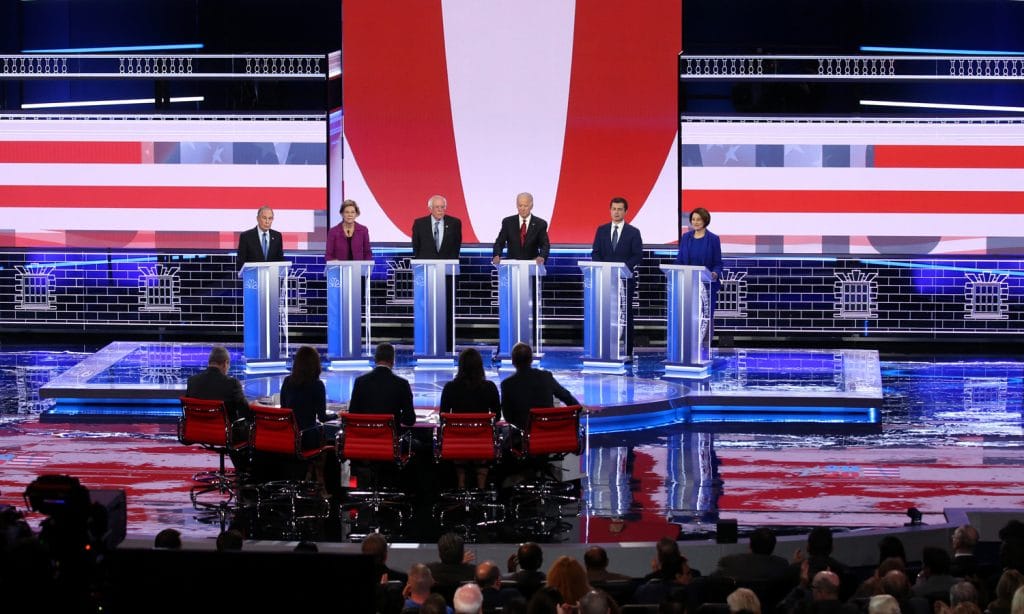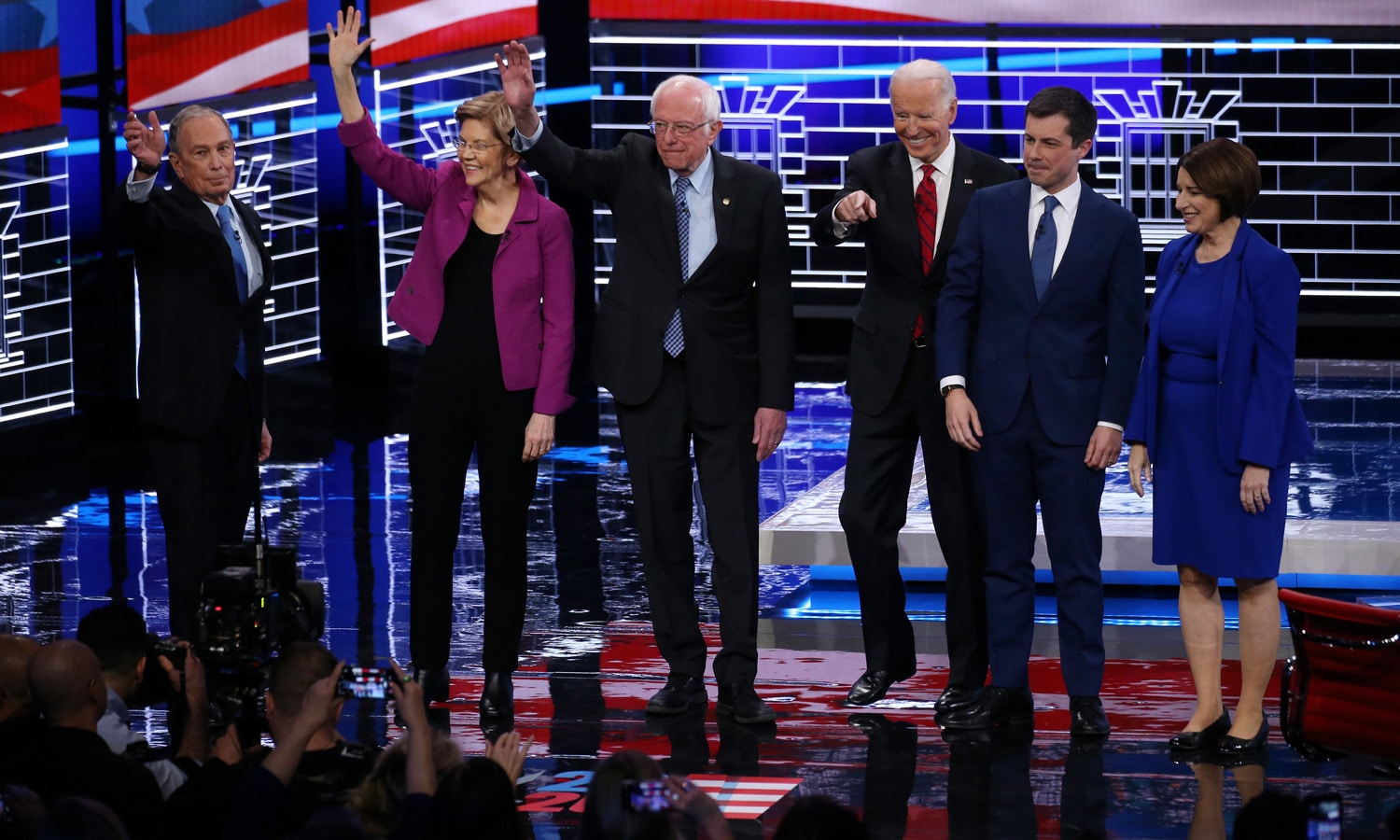Even as a majority of states have legalized medical cannabis and more than 20% of Americans live in states that have legalized adult-use cannabis, mainstream media views cannabis as a fringe policy.
In the Democratic presidential debate last night in Las Vegas, the candidates attacked each other, with each trying to diminish their rivals in an attempt to elevate themselves among voters. However, the moderators diminished themselves in failing to bring up the topic of cannabis.
Nevada legalized cannabis via a ballot initiative in 2016, and the location of the debate presented a perfect opportunity for debate moderators to engage the issue. They did not. That failure highlights a real misunderstanding among media elite about the importance of the matter.
Even as a majority of states have legalized medical cannabis and more than 20% of Americans live in states that have legalized adult-use cannabis, mainstream media views cannabis as a fringe policy that matters little to the national conversation. Yet, cannabis policy engages a variety of other issues that Democratic candidates typically chomp at the bit to discuss. Cannabis policy includes race relations, criminal justice, social justice, tax fairness, entrepreneurship, the environment, agriculture, states’ rights, among other issues.
In a state as diverse as Nevada, one would think that a decision by voters to shift away from prohibition would be worthy of at least one question. Cannabis prohibition has disproportionately impacted communities of color in significant ways. Each year, hundreds of thousands of Americans are arrested for cannabis-related crimes, and the effect of those arrests interrupt the success of entire communities. Economic and educational opportunities are dashed by convictions that hang over individuals for the remainder of their lives. Black and brown Americans face tremendous barriers not simply because of cannabis policy, but because of the manner in which that policy is enforced.
Debate moderators could have discussed the statistics around cannabis enforcement in ways that allowed Democratic candidates both to discuss the policy and to discuss the interrelated policies that form the foundation of Democratic Party beliefs. Instead, that opportunity was missed.
RELATED: America Can Probably Forget About Federal Marijuana Legalization Anytime Soon
Part of that problem stems from the diminished role of the only moderator who lives in Nevada, Jon Ralston, who was given little chance to discuss issues involving the Silver State. Yet, cannabis legalization is not simply a Nevada issue. It is one of national significance that often gets overlooked because of the historical bias around legalization policy. It is seen as taboo or whimsical or lacking in seriousness.
Cannabis legalization is also seen as something that eludes the interest of most Americans. And that assessment is correct. A supermajority of Americans support the legalization of cannabis, but it isn’t a priority with public opinion. (This story goes into detail about how the public views the legalization process.) Despite the energy within the advocacy community and the cannabis industry, the issue remains a minor one in the eyes of much of the public. It is seen as an issue not worthy of elevation to mainstream politics, and part of that failure is reflected in (and caused by) the type of media behavior on display during Wednesday night’s debate.

The failure of national media to discuss cannabis legalization as the diverse issue that it is leaves most Americans unwilling to connect the dots between it and other more “meaningful” policies. Yes, presidential debates are reserved for the biggest issues of the day, but how many more times do Americans need to hear the same, tired talking points about healthcare and wealth taxes?
After nearly a dozen Democratic primary debates, there has been little dynamism in the conversation, and Wednesday night’s debate added to that — despite the fiery exchanges among candidates. In a state that legalized cannabis, in a county with some of the nation’s strongest union membership, in a city that saw the worst mass murder from gun violence in American history, the debate failed to engage in any meaningful way pot, labor organization, or assault weapons.
RELATED: Bernie Sanders Says He’ll Legalize Marijuana First Day As President — Is That Possible?
Presidential debates should be about more than the people on stage. The location of a debate should induce moderators to question candidates about issues meaningful to voters within that state or city. Nevadans will caucus on Saturday and make a choice about who they believe will be the best candidate for president. They will expect that person to be most suited to deal with national and international issues. However, those voters will still care deeply about a prospective president’s position on local-level policies of importance.
It is true that any one of the six candidates on stage could have brought up any number of issues unprovoked, but it is incumbent on moderators to guide the conversation.
Wednesday night’s Democratic primary debate reinforced the idea that cannabis is not important enough to be discussed by those individuals seeking to hold the highest office in the country. While cannabis advocates and industry have spent decades informing voters about the issue, there is still much work to be done to change the minds of media organization.
Until national media shifts from a stance that cannabis policy is fodder for humorless puns and tongue-in-cheek movie references, the issue will remain diminished in the eyes of the average voter and candidates seeking to become President of the United States.


